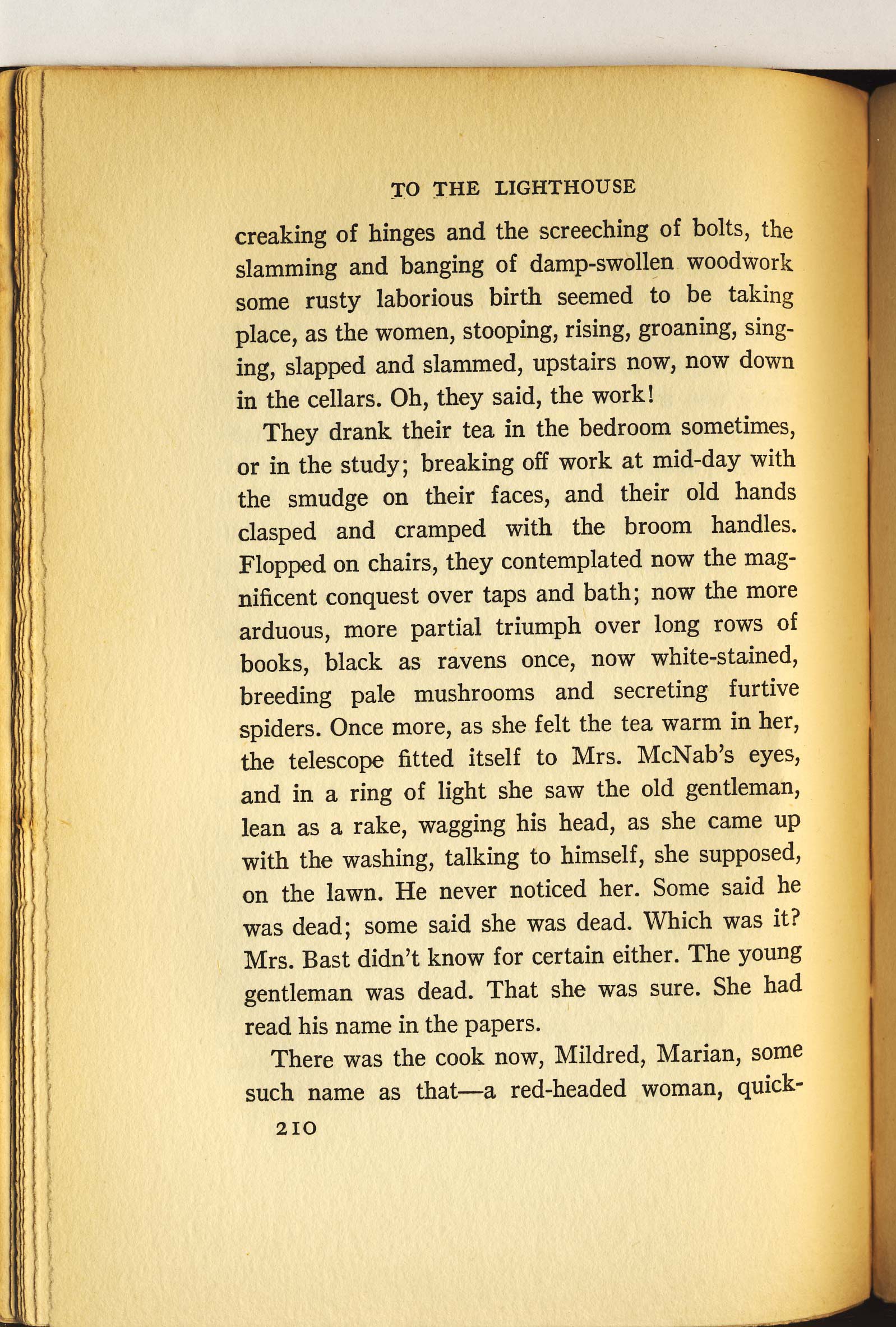
TO THE LIGHTHOUSEcreaking of hinges and the screeching of bolts, theslamming and banging of damp-swollen woodworksome rusty laborious birth seemed to be takingplace, as the women, stooping, rising, groaning, sing-ing, slapped and slammed, upstairs now, now downin the cellars. Oh, they said, the work!They drank their tea in the bedroom sometimes,or in the study; breaking off work at mid-day withthe smudge on their faces, and their old handsclasped and cramped with the broom handles.Flopped on chairs, they contemplated now the mag-nificent conquest over taps and bath; now the morearduous, more partial triumph over long rows ofbooks, black as ravens once, now white-stained,breeding pale mushrooms and secreting furtivespiders. Once more, as she felt the tea warm in her,the telescope fitted itself to Mrs. McNab’s eyes,and in a ring of light she saw the old gentleman,lean as a rake, wagging his head, as she came upwith the washing, talking to himself, she supposed,on the lawn. He never noticed her. Some said hewas dead; some said she was dead. Which was it?Mrs. Bast didn’t know for certain either. The younggentleman was dead. That she was sure. She hadread his name in the papers.There was the cook now, Mildred, Marian, somesuch name as that—a red-headed woman, quick-210









